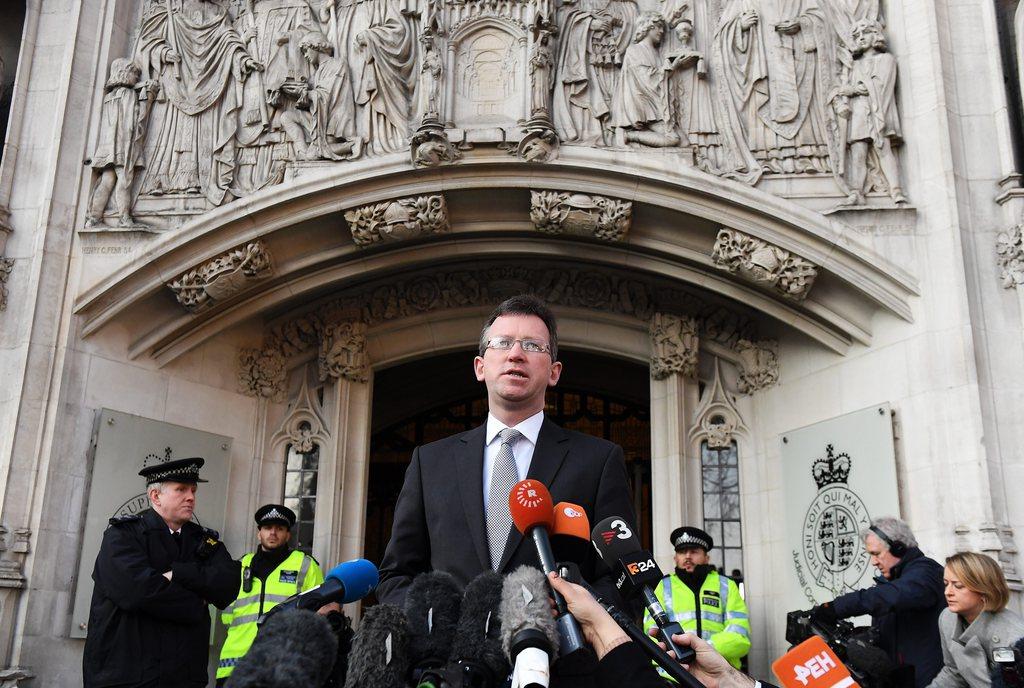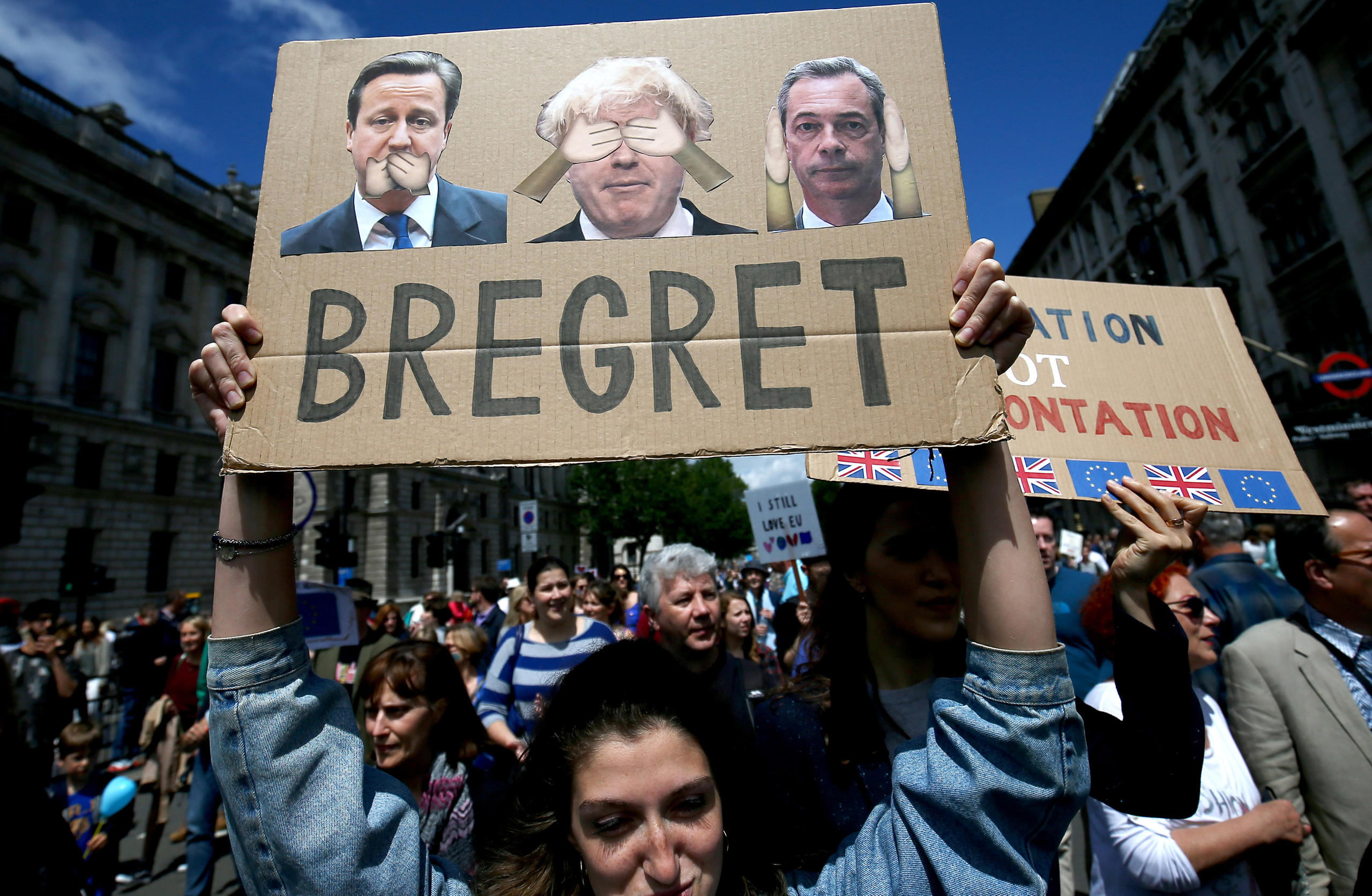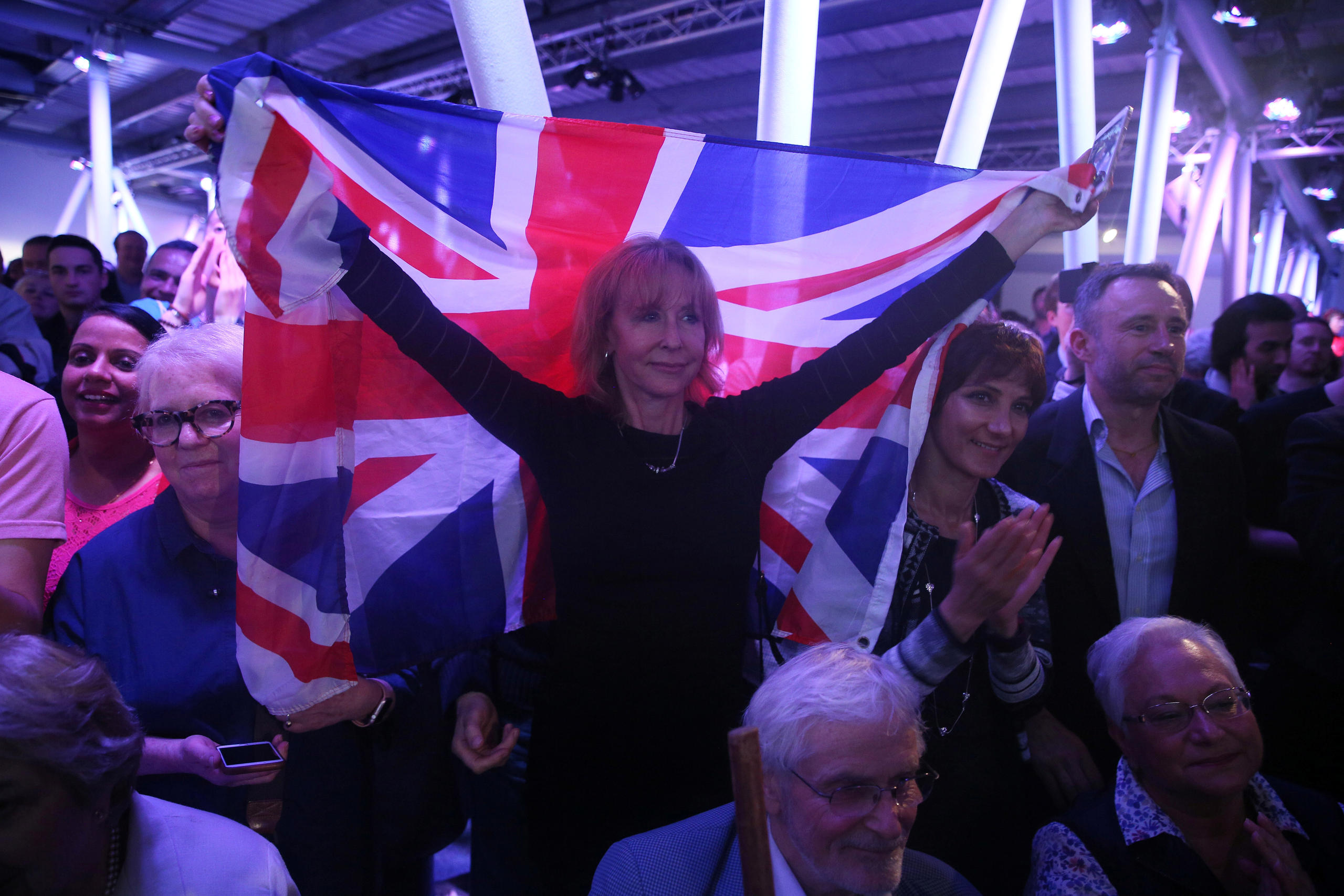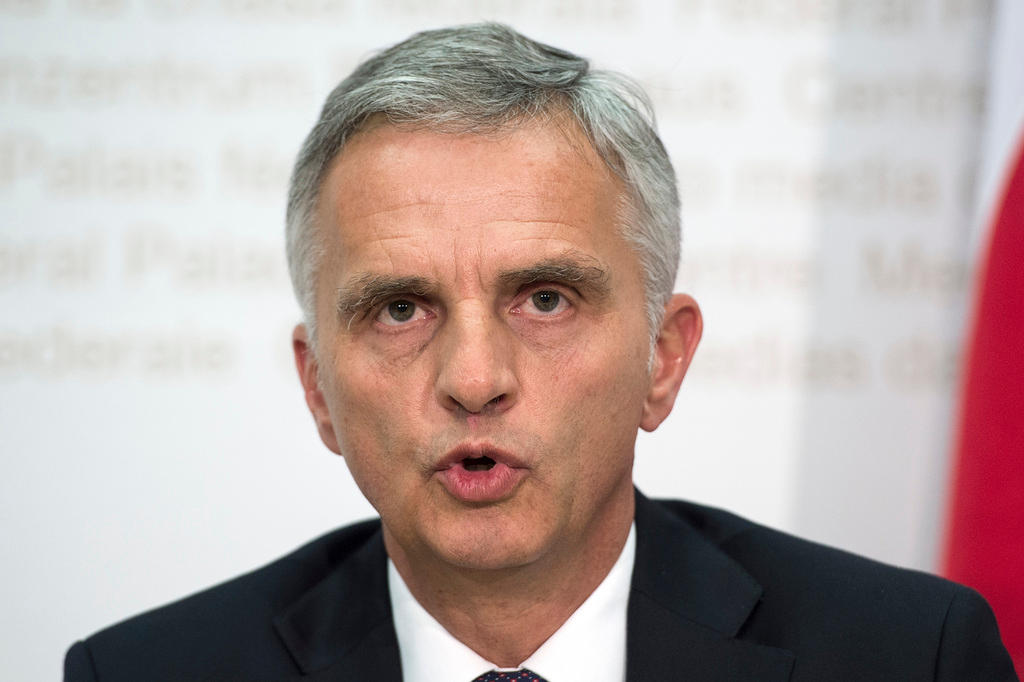Brexit needs parliament OK but citizens have no say

Britain’s Supreme Court has ruled that the government needs parliamentary consent to start the Brexit process. But for Prime Minister Theresa May there are no doubts: “We’re out, the United Kingdom is leaving the European Union.”
Tuesday’s final decision of the Supreme CourtExternal link not to allow the government to trigger the Exit-clause of the EU treaties brings some constitutional clarity about how to implement last June’s vote on Brexit.
In brief: There must be a vote by the British parliament to trigger the next step of Brexit (the two-year negotiations with the EU) and, the national parliaments in Scotland, Wales and Northern Ireland have no say in this.
This decision by Britain’s highest judicial authority (the Supreme Court convened for the very first time since its installation) followed an address by the prime minister last week.
In her speech given to senior ministers and foreign ambassadors in central London, May outlined the priorities of her government in the forthcoming negotiations with Brussels under Article 50 of the Treaty of Lisbon, which allows a member state to leave the EU.
May mixed conciliatory and confrontational rhetoric during the speech saying, “Britain remains the best friend of the Union“, while also announcing, “No deal will be better than a bad deal” for Britain.

More than 200 days after the historic Brexit-plebiscite (a consultative ad-hoc referendum triggered by May’s predecessor David Cameron), the prime minister sought to explain why a majority of voters (51.9%) preferred the LEAVE-option on June 23, 2016.
“We have been seen as an awkward member in an inflexible EU,” said May, who herself had voted for REMAIN last year. The record turnout of just over 72% validated the narrow Leave win as a legitimate popular decision in spite of the weak constitutional role of direct democracy in Britain.
Britain, according to May, is now seeking a so-called ‘hard Brexit’ with no room for partial membership, the solutions sought by non-member states like Norway and Switzerland. This means, that the conservative government in London wants to leave the single market and any EU-related jurisdiction after 2020.
Bilateral accords
Going forward, May wants to negotiate accords on free trade and customs with Brussels. To resolve open questions about the status of millions of EU citizens in Britain and UK citizens across the EU, May wants to reach specific bilateral agreements with the Union.
Another big question remains. How will the British government deal with regional governments within the UK, which decided to maintain EU ties?
The outcome of the Brexit vote resulted in a clear division between the majority of English voters, who wanted to LEAVE, and those in Scotland and Northern Ireland, where clear majorities (in Scotland 62%, in Northern Ireland 56%) expressed their intention to REMAIN in the EU. (In Wales, 52% supported the LEAVE camp).
The UK is a modern democracy of its very own style. Because of a long-term step-by-step process, people power in Britain has taken special ways.
As there is no written constitution, popular sovereignty has never been fully enshrined in British democracy, where the monarch still embodies something like a power of god’s grace, which in modern time has transcended into a sort of parliamentarian sovereignty rule.
Britain’s popular votes are not binding and the election system regularly produces absolute parliamentarian and hence governmental majorities by electoral minorities. The current conservative government won 36.9% of the vote in 2015 and 330 out of 650 seats in the Westminster parliament.
In this framework, direct democratic principles, provisions and practices have had a very hard time. For instance, citizens can’t launch popular votes by initiative and referendum.
The only tool of involving the citizens directly is by the government allowing (formally only consultative) plebiscites, as it happened last year with the Brexit-vote.
It was the 12th such popular vote across Britain since 1973. Three of them have been UK-wide, while another nine were restricted to certain regions (Greater London 1998) and member-states like Scotland (1979, 1997 and 2014), Northern Ireland (1973, 1998) and Wales (1997, 2011).
The UK-wide plebiscites included EU-membership (yes in 1975, no in 2016) and a change of the voting system (no in 2011).
The January 24 Supreme Court ruling has no impact on the role of direct democracy. But it gives clear instructions for the government to deal with the result of a popular vote – by involving parliament. (BK)
In an attempt to avoid greater internal divides on the issue, May invited the regional governments to share their views on how to implement Brexit, but she refused to grant an ‘opt-out’ from of the Brexit decision.
In response, Scottish First Minister Nicola Sturgeon described the ‘hard-Brexit’-strategy by London as an “economic catastrophe” saying, this was not in “Scotland’s national interest.”
“Another future for Scotland became much more likely today,” said Sturgeon, a reference to the increased likelihood of another referendum on Scottish Independence (from the UK) in the coming years.
Three years ago, a majority of Scots opted to REMAIN in the UK by 55.7% (turnout: 84.6%).
‘Theft of democracy’
May for her part made clear, that there won’t be any more popular votes on implementing the Brexit decision – even though many members of the British parliament say such votes are required.
“This is a theft of democracy,” said Tim Farron, the leader of the Liberal Democrats in parliament. “The people voted on departure, they should be given a vote on the destination,” he added.
Parliament itself will get a say on the final deal with the EU, according to May. This announcement provided clarity after months of uncertainty on parliamentary participation in the process.
May’s conservative government last November lost a court case when three High Court judges unanimously decided that May did not have authority to use the royal prerogative to invoke article 50 of the Lisbon Treaty to start the two-year process of negotiating the UK’s departure from the EU.
A so-called ‘people’s challenge’ led by millionaire investment manager Gina Miller argued that the government would be acting unlawfully unless it gave MPs a vote before starting Brexit negotiations.
Monarchical complacency – democratic practice
May’s Brexit strategy is a mixed bag – both for Europe and for democracy.
The British government says it wants to obey the popular will, but it won’t give the people another chance to express that will.
This leaves the British government navigating a difficult ridge between monarchical complacency and modern democratic practice.
For now, it looks like last year’s once-in-a-lifetime citizen involvement on the EU has not produced a stronger, more democratic Britain.
By pursuing a hardcore top-down approach for implementing Brexit, the country of more than 60 million people risks further disintegration – and a rollback of democratic progress and participation.

In compliance with the JTI standards
More: SWI swissinfo.ch certified by the Journalism Trust Initiative





You can find an overview of ongoing debates with our journalists here. Please join us!
If you want to start a conversation about a topic raised in this article or want to report factual errors, email us at english@swissinfo.ch.